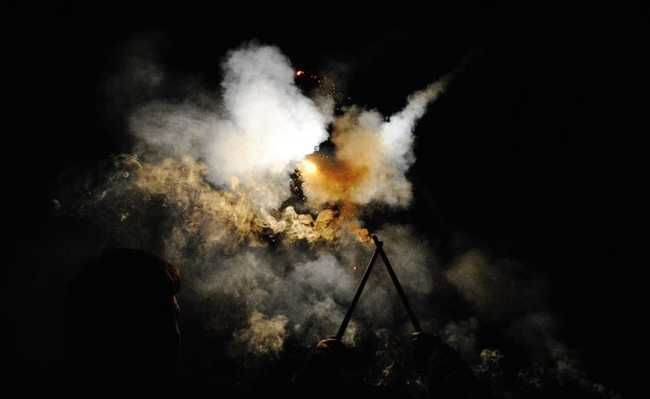Is coffee bad for your health?
In fact, it's not that coffee is bad, but its consumption can have some side effects

Edited and resized image by Ronaldo Arthur Vidal is available on Unsplash
Coffee has been a beverage that has been consumed since the 7th century. It is able to provide benefits such as improving cognitive and physical performance, providing antioxidants and nutrients, among others you can see in the article: "Eight incredible benefits of coffee". But is coffee bad?
- Antioxidants: what are they and in what foods to find them
In fact, it's not that coffee is bad, but it can have some side effects - especially if consumed in excess - such as increased anxiety. Understand:
- Home-style and natural anxiety remedies
the caffeine
The main active compound in coffee is caffeine, which is also present in other beverages such as teas.
- Organic teas, various benefits and flavors
Caffeine is a psychostimulant alkaloid (a drug capable of stimulating activity, alertness and attention) that belongs to the group of xanthines. Xanthine derivatives are used as brain stimulants or psychomotor stimulants as they act on the cerebral cortex and medullary centers. Hence, caffeine has a marked effect on mental and behavioral function. It acts on the autonomic nervous system and its mechanism of action inhibits adenosine receptors.
Adenosine is a neurotransmitter that acts to control heart rate, blood pressure and body temperature. It is she who induces the sensations of sleep and tiredness. As caffeine inhibits its action, it ends up causing the opposite effects. That's why coffee consumption (with caffeine) is related to increased concentration, mood improvement, weight control, among others. However, people who use the substance regularly end up noticing their sensations less.
- Caffeine: from therapeutic effects to risks
A cup of coffee contains between 60mg and 150mg of caffeine - if it's not decaffeinated coffee. The lowest value (60 mg) corresponds to a cup of instant instant coffee, while a brewed coffee can reach 150 mg of caffeine per cup. Learn more about the different methods of making coffee in the article: "How to make coffee in the most sustainable way".
Among the natural sources of caffeine, coffee is the most consumed. The concentration of caffeine in coffee depends on several factors, such as the variety of the plant, the cultivation method, the growing conditions, and genetic and seasonal aspects. In addition, when the drink is prepared, factors such as the amount of powder, the mode of production (whether the product is roasted or instant, decaffeinated or traditional), and its preparation process (espresso or strained, for example) influence the amount of caffeine.
- Coffee grounds: 13 amazing uses
Darker coffees seem to have more caffeine than lighter ones, but that's not true. As much as dark coffees are stronger and fuller-bodied, the roasting process burns some of the caffeine. For this reason, dark roast coffee is a better option for those who want to enjoy the drink while feeling the effects of caffeine with less intensity.
According to the European Food Information Council, the average half-life (time taken for the concentration of a drug in the body to be halved) of caffeine in the body varies from two to ten hours. There is great individual variation and the body reaches its maximum concentration one hour after ingestion.
According to a report published by the scientific committee of European Food Safety Authority (EFSA), the safety limit would be, on average, 400 mg per day (about four cups of coffee) for adult individuals weighing about 70 kg. For pregnant or lactating women, the value would be 200 mg a day.
Is coffee bad?
In adults, the caffeine in coffee appears to protect the brain from stress-related damage. But, in intrauterine life, it can disrupt the fetal neural development and corroborate risk factors for diseases such as epilepsy.
Although coffee is not proven to be harmful, it is not considered safe for children and teenagers, so don't let your little ones ingest more than 100 mg of caffeine a day.
The saying goes that the difference between poison and medicine is the dose. People who drink more than five cups of coffee a day (more than 500 mg or 600 mg) may experience adverse effects. Among them, the following stand out: insomnia, nervousness, agitation, irritability, stomach pain from increased gastric juice, accelerated heartbeat and muscle tremors. People who don't drink coffee often can feel the negative effects even in low doses.
For some individuals, a cup of tea or coffee may be enough for a night of sleeplessness or restlessness. Factors such as body weight, age, medication use, and health problems (such as anxiety disorders) can magnify side effects. Because it increases the heart rate, its consumption should be moderated by individuals with hypertension, coronary artery disease and cardiac arrhythmia.
- Coffee without anxiety? Mix cocoa!
Inhibition of adenosine receptors does not only bring positive effects. Adenosine is very important for deep sleep. For this reason, the caffeine present in coffee can negatively affect motor control and sleep quality, depriving coffee consumers of the benefits of deep sleep. The next day, you'll be tired and you'll need more caffeine to keep you fit. This vicious cycle is not healthy for your body.
If based on your life experience you believe that coffee is bad for your health, why not try decaffeinated coffee? Learn more about it in the article: "What is decaffeinated coffee? Is it bad?".
If you have been suffering from insomnia because of coffee, take a look at the article: "Insomnia: what is it, teas, medicines, causes and how to end it", maybe it can help you.










